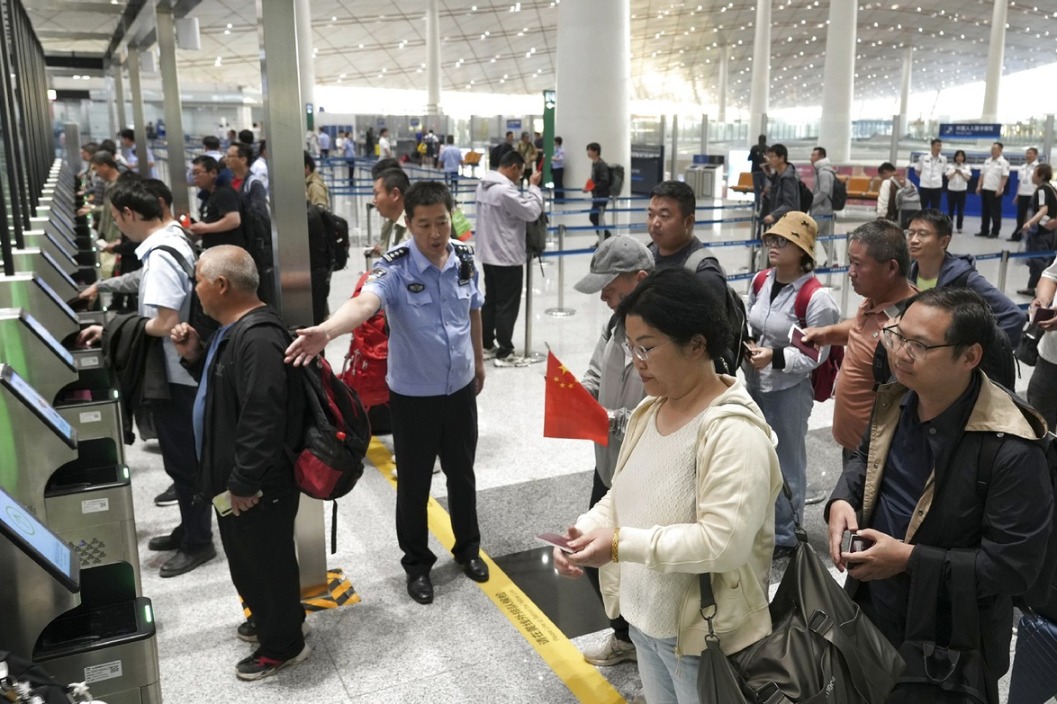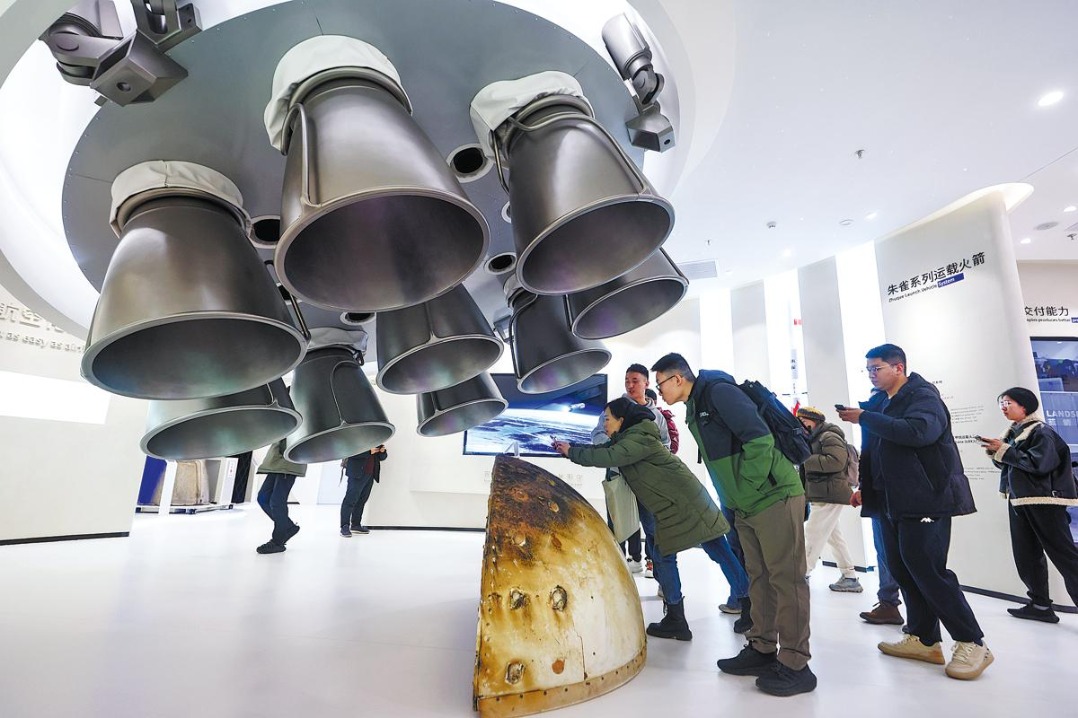Tales from five women on the front line

Editor's note: To mark International Women's Day, which fell on Sunday, the State Council Information Office invited some women who have been helping fight the epidemic on the front line to share their stories.

Yuan Yadong, doctor from the Second Hospital of Hebei Medical University who joined a medical team and went to Wuhan
As one of the country's tens of thousands of medical professionals who rushed to Wuhan to help fight the novel coronavirus epidemic, Yuan Yadong said their efforts were for a single goal-for all people in the country to able to take off their masks and breathe freely.
On Jan 27, with about 150 medical professionals from Hebei province, Yuan's team took over the work of treating infected patients at Wuhan No 7 Hospital.
"For weeks, we had about 190 patients hospitalized, with more than half of them showing severe symptoms or in critical condition," Yuan said. By Saturday, 159 patients had been discharged.
"Fears about the epidemic are reasonable. As a doctor, however, we should be more courageous," Yuan said. "We should believe that our safety can be guaranteed under effective protection and lives can also be saved via scientific treatment."

Zhang Chunxiang, sanitation worker in Wuhan who has been recruited to work in the hot zones at a hospital
When the 14-day isolation period came to an end last month, Zhang Chunxiang and 14 other colleagues packed their suitcases, made their beds and left their hotel rooms in Wuhan as if they had never come.
"I just don't want to cause trouble for others," said Zhang, 59.
On Jan 28, Zhang learned that her employer was recruiting cleaners for isolation wards at the western district of Wuhan Union Hospital, and she was among the 15 female cleaners who first entered the contaminated areas.
"I'm a cleaner, and I have no worries as my children are all married," she said. "If no one does the cleaning there, the situation will become worse."
She said she was frightened the first time she entered the hot zone but was relieved after seeing doctors from Beijing and Heilongjiang province.
"I thought to myself, they are from out of town and risked their lives to aid us," she said. "What should we Wuhan locals be afraid of?"

Liao Jun, reporter with the Hubei bureau of Xinhua News Agency
Reporting about how China fights the virus is the duty of front-line reporters despite the dangers, said Liao Jun, who has been covering the epidemic for more than two months.
Liao has visited hospitals, isolation facilities and local communities around the city. "For the first time in my career, I felt my line of work could cost me my life," said Liao, a mother of two children. But she said it was her duty, and she was also deeply touched by the people she talked to.
In one young couple she interviewed, the wife is a doctor at a hospital designated for novel coronavirus patients. The wife has been staying at a hotel since Jan 23 to be isolated from her family. Every day, the husband follows her in the car in the dark and lights up the road in front of her with the headlights because she refuses to get into the car, fearing that she might spread the virus to him.
Liao said she will always remember stories like this, which show the strength of the Wuhan people.

Zhong Xiaofeng, head nurse of the intensive care unit of Wuhan Pulmonary Hospital
For Zhong Xiaofeng, every second of every day is precious, as her job is to race against time to save more lives.
"I don't think about health risks too much, or even have time to be afraid, because saving patients is always my responsibility and mission," she said.
In the ICU, a place where many patients were facing death, the workload and risks were both greater than in any other wards. "Every step we take could mean life or death for the infected," she said.
Despite the risk of getting infected and the fatigue caused by the heavy workload, no one on the team had complained.
"We've also been encouraged by the patients," Zhong said.
"One day, a young nurse cried after walking out of a ward, and I thought she was too tired or felt uncomfortable. But she told me it was because a patient she looked after finally became conscious. She said her efforts were not in vain."

Yang Xue, founder of a volunteer group that helps medical workers commute
Yang Xue set up a volunteer driver group in January and named it "guardian angels". By the end of February, her team of 69 drivers had carried medical workers on 850 trips.
"White angels are guardians of their patients and we want to be guardians of them," said Yang, 30.
Learning that many medical workers had difficulty commuting after public transportation was suspended, Yang launched a campaign online calling for volunteers. Joining a bigger volunteer group organized by the Hongshan district several days later, they began transporting supplies.
"One day, I was waiting for the traffic light when a soldier in a car beside me rolled down the window and saluted me," she said. "He did this maybe because he had seen the red volunteer sticker on my car.
"At that moment, I realized that as a Wuhan resident, I had to act bravely and contribute all my strength to help Wuhan recover."
Today's Top News
- Bombing set to dent world economy and stifle growth
- Mideast tensions escalate as US attacks Iran's nuclear sites
- Chinese EVs help drive Africa's green transition
- Outlawed strikes on Iran's nuclear facilities have made very bad situation even worse: Editorial
- China strongly condemns the US attacks on Iran, nuclear facilities
- Diabetes affects 233 million Chinese, study says






























